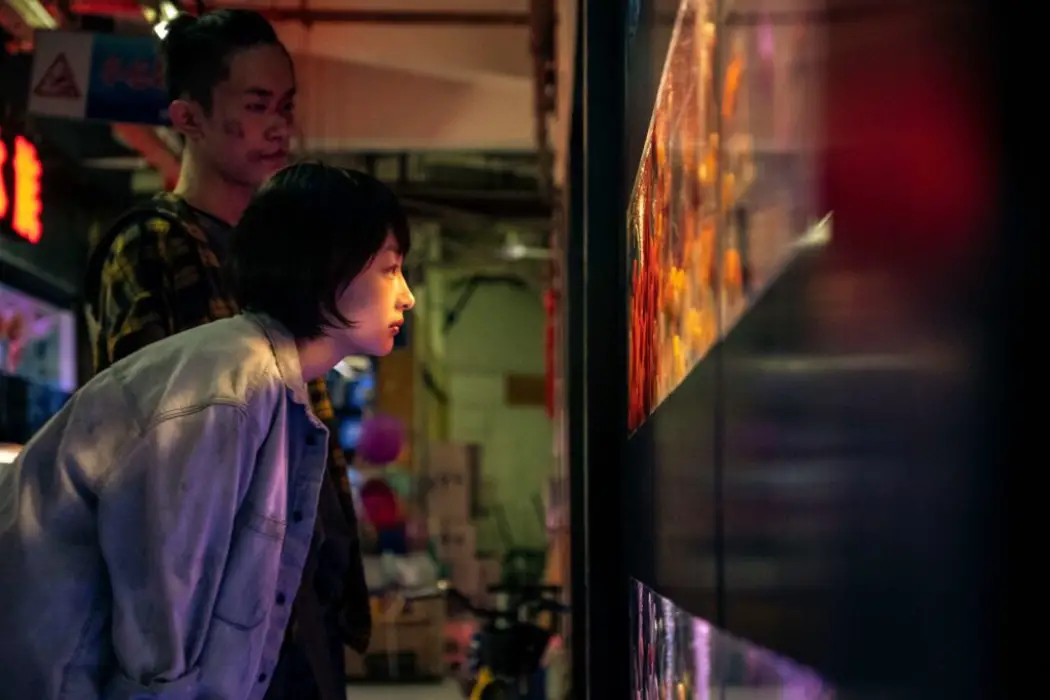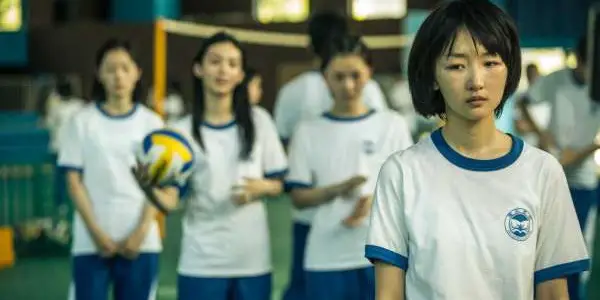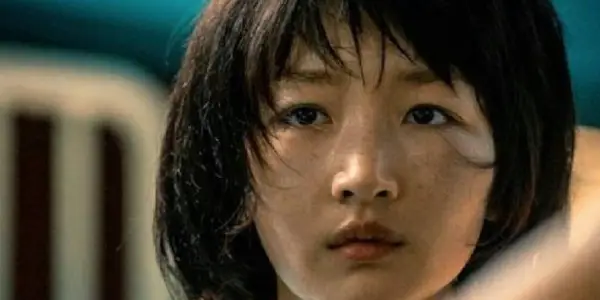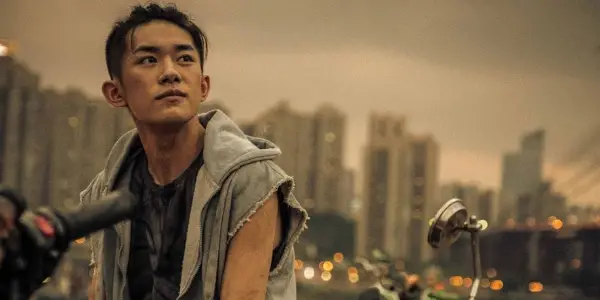BETTER DAYS: A Brutally Candid Chinese Drama About Bullying

Andrew Stover is a film critic/writer from the Chicagoland. His…
Derek Tsang’s Better Days was on its way to cinematically encompass China’s education system and broader societal dysfunction at the Berlin International Film Festival, until getting a wide theatrical release in June. The weighty essence of Tsang’s drama was going to exhibit graphic bullying; a bulk of most national teen films but manifestly baneful for China’s image. Bullying and growing up are two occasionally parallel topics that generate a lot of emotional resonance with the audience. Unfortunately, the Chinese government decided to pull the plug on the project’s premiere and forthcoming release. One factor had to do with Tsang’s brutal depiction of bullying, and another factor happened to do with the underscoring of the ‘gaokao’, China’s taxing national university entrance exam, which concurred with the planned release date. Bullying and suicide are two evidently known issues that don’t only plague the U.S. territory; it’s a ubiquitous issue that affects the world, letting those on the edge slip through the cracks because of societal abandonment. Officially approved a theatrical run in China that started October 25, it wasn’t long until Better Days got a U.S. release in November.
All politics behind-the-scenes aside, Better Days is a harrowing and soul-stirring drama that does naturally bear political vim and importance. When it comes to school bullying, the consequences are unregulated, likely resulting in self-blame, self-hate, acts of violence, including suicide. To censor the truth is a crime against the people, the victims of bullying who aren’t able to lean on their parents, the law or society because, in this instance, academic triumph is proclaimed in a biblical sense. And one test will measure the value of your life onwards from youth, so no pressure. For high school senior Chen Nian (Zhou Dongyu), it’s not any different: She’s pulled under the weight of the NCEE (National College Entrance Exam) or “gaokao,” China’s grinding, two-day test that will determine her future. Verbally pushed by her authoritarian teachers to master the test to accomplish long-time success, it gets worse for Chen Nian when she becomes the next victim of bullying.

As the film starts in Chongqing circa 2011, Hu (an engagingly muted Yifan Zhang), the only student Chen Nian can even call a friend, has committed suicide, curveting to her death from an upper floor of the school, landing in a disfigured, bloody pile on the platform below. A victim of unabating abuse helmed by Wei Lai (a relentlessly and effectively cruel Ye Zhou), Hu is the sufferer of one final mortification as her classmates gather around her body, taking photos and posting them online, broadcasting the tragedy to the world as hopeless bystanders who let the bullies’ unspoken dominance run unchecked. Assuming a quiet demeanor, Chen Nian is the only one to inherit the decorum to conceal the body from wide-spread chatter. She trudges closer to the unseen aftermath of Hu, laying under a jacket to mask the gore of Hu’s lifeless body, and Chen Nian’s forlorn eyes emanate so much heartbreak. It’s a simple act of kindness that inadvertently turns her into the next target of the bullies’ abuse, who are greatly concerned that she’ll tell the police and school officials about their maltreatment.
Hopefully, home can serve as a sturdy haven, free from any arm-twisting bullies and pervaded with love and security. Unfortunately, she’s being raised by a single mom who loves her but makes her living selling illegal goods. Creditors belligerently knock on the door every day it seems, demanding payment. Her mother, loving yet awfully starry-eyed, frequently overestimates her daughter’s ability to live without a present mother and financial stability. A brighter future relies on Chen Nian getting an outstanding score on the “gaokao” and being able to attend a top-tier university. One night walking home alone, Chen Nian runs into Xiao Bei (Jackson Yee), an impecunious dropout, currently being beaten up by a ruthless group of men. Attempting to call the police, the group of men stops her in her tracks and begins to taunt her, coercing her to kiss Xiao Bei. Harnessing enough rage, Xiao Bei fights back, fleeing the scene with deep scratches but dignity attached. In a later scene, Xiao Bei looks to make amends with Chen Nian, fixing her phone and giving her money back that the men stole. Still exposed to the merciless bullies, Chen Nian can’t spend her days alone, walking home in utter fear, so she persuades Xiao Bei to become her bodyguard.
A Stirring Portrait of Bullying
The film begins with a calculated suicide, orchestrated by a reserved student named Hu. We get a fleeting glimpse of her character carrying milk jugs with our protagonist, wearing a dejected face that shows her ceaseless fray for survival is ultimately over. Minutes later, Hu leaps off the school’s second story, accepting the unknown than enduring the ill-treatment of her peers. Instead of succumbing to shock value (13 Reasons Why never learned), the outcome of Hu’s irrevocable jump isn’t shown; what is shown is Chen Nian offering her jacket to shroud Hu’s stiff body. The suicide alone is disheartening, but Chen Nian’s genuine act of altruism countervails the public’s barefaced intrusiveness. If only this dispiriting suicide finally impelled school officials to crack down on the matter of bullying, but “gaokao” remains at the utmost importance. Detective Zheng Yi (a frustratingly righteous Fang Yin) arrives on-scene to question students, including Chen Nian, but he’s unable to acquire a clear-cut answer to Hu’s suicide at the moment.
Wrestling with her friend’s tragic death and how she never intervened to halt the bullying, Chen Nian isn’t given the chance to voice her heartache and frustration. The “gaokao” is getting closer and closer, and she’s now subjected to Wei Lai’s abuse — principally because she’s afraid that Chen Nian may tell the police that she’s the prime culprit in Hu’s death. The first act lays out an unsparingly gripping portraiture of human dolor and the very worse implications of bullying.
Chen Nian chose to steer clear of her friend’s perturbation. Maybe it was apprehension that she’ll become the next target of Wei Lai’s torment; maybe the stress of the “gaokao” made her pay no heed to her surroundings, distorting reality with equations and English conjugation; or maybe the bystander effect (individuals are less likely to offer assistance to a victim when other people are present) was covertly in progress. Whatever it was that obviated Chen Nian from assisting her brutally bullied friend, the fact that she didn’t is about as baleful as being the bully. Shortcomings aside, Chen Nian shouldn’t be a slave to what she didn’t do, even so, she should acknowledge where she went wrong and learn from it. This subfusc tale gets even bleaker when the bystander becomes the victim.

With fearful eyes, demure bearing and blinding impassivity, Zhou Dongyu delivers a riveting lead performance that lures you in with unadorned empathy and desolation. While some of Dongyu’s previous roles were dramatic, existing solely in the realm of coming-of-age dramas and breezy rom-coms (Us & Them, My Old Classmate), Better Days allows Dongyu to emote more aggressively and affectingly. Strangely enough, Dongyu exudes paltry emotion, perhaps as a coping mechanism to deal with her friend’s sudden death, or panic when cornered by Wei Lai.
Despite showing very little emotion, Chen Nian has a voice, yet it’s suppressed by virulent peers and academic conquest that drains her energy and time. The measures of bullying swiftly intensify from persistent humiliation to unrestricted cruelty that’s legally categorized as assault. The scenes of bullying are keenly heart-pounding and majorly authentic, giving the film more potency. One of the more effective moments is when Xiao Bei is compelled to fight other thugs, which is occurring concurrently with Chen, who is being assaulted by Wei Lai; it’s by far one of the most unnerving moments in cinema this year.
An Ill-Starred Romance & A Barbaric Murder
It isn’t until Xiao Bei enters Chen Nian’s life that she experiences a sense of safety — and before we know it, two broken souls conflate into a doomed romance. With a thin forelock, a mysterious mien and a hairband that keeps his hair brushed back neatly, Jackson Yee reifies a beguiling persona taken straight out of a swoony rom-com (but his inward turmoil kindles enthralling emotional weight). Xiao Bei’s tough, wounded, always showing up with a deep cut or bruise, and his amour propre still intact. It’s suitable that Xiao Bei lives in the underworld. Meeting eyes with Chen Nian, Xiao Bei is entranced by her vulnerability. Beyond Chen Nian’s glazed face, she carries so much pain within, something Xiao Bei is greatly familiar with. As Chen Nian and Xiao Bei’s incipient relationship continues to prosper, and emotional truths are revealed, the film hinges on the trauma of school bullying and other forms of abuse both parties suffer from.
Xiao Bei becomes Chen Nian’s bodyguard, furtively lurking behind Chen Nian on her way to and from school to protect her from the implacable bullies. Albeit the romantic spark faintly lingers between them — primarily because their connection is largely based on relatability and how they’re all too familiar with unbounded anguish — Tsang doesn’t try to vindicate Xiao Bei’s sordid actions to resolve Chen’s bullying problem. When Xiao Bei is tied up in a precariously violent scenario, unable to follow Chen to sustain her safety, she’s viciously ambushed by Wei Lai and her tractable compeers. Xiao Bei sees the grisly aftermath — a battered, exposed and shaved Chen — and he’s fueled by rancor and woe, itching to react out of savagery, but Chen stops him in his tracks (or maybe not). Suddenly, a burnt and deformed dead body is unearthed near a construction site, and the second half sprinkles in a mystery that’ll inevitably cause Chen and Xiao’s romance to implode.

We must look at how or why somebody may react out of instinct or self-serving intent if we wish to make a change (or at least attempt to do so). Truthfully, societal and parental neglect are unyielding entities that have a major (or minor) influence on a person’s state of mind or perspective on things. The feedback of the school authorities to Chen’s bullying depositions (or the lack thereof) is relatively realistic. Regrettably, school officials are disinclined to foist penalties against Wei Lai’s circle; after unremitting lobbying of parents, the bullies’ ramifications are markedly mollified. The reality is that students in China may have it worse than their American peers, generally because their parents are mired in jobs that take them far from home, unable to supply any emotional support. A bully’s parent/guardian, or even a victim’s parent/guardian, may misprize the effect of bullying on both parties, chiefly because education (more precisely, the NCEE) is treated with the most significance.
In Tsang’s daring Chinese drama, China’s school administration and law officials are not painted in a positive image, which is potentially why it was censored in the first place. It’ll remain unclear what was cut because of unfortunate censorship, still, Tsang trifles with indie sobriety but submits entirely to Yu Jing-Pin’s sharp cinematography — employing puissant close-up shots, grainy lighting and unwavering camerawork. Whether it be a motorcycle montage that arrives at Xiao’s dingy, hidden apartment, a tense segment of bullying which deftly follows Chen running for dear life, or a shot of intimacy between Chen and Xiao, the camera compliments the emotional freedom Chen and Xiao acquired from their deep-seated connection. And their fleeting romance foregrounds the emotional freedom or empathy they never procured from society or family. Woefully, it was an ill-fated romance from the start.
In many ways, Better Days is a melodrama, a brazen one for that matter that toys with its topics in a commendable yet scattered manner. First, there’s a suicide, then a romance, then a murder, then another hasty act of violence. There’s so much to unpack in Tsang’s drama, yet not nearly enough time to probe all of the pieces in their entirety. Nonetheless, bullying is the central concern that holds the most gravity.
Conclusion: Better Days Deserves An Audience
Better Days is a mostly earnest drama that plods through bullying, academic stress, murder and tragedy, retaining a fittingly bleak and dolorous tone. The editing is a bit hurried, especially when the quieter scenes between Chen and Xiao need more screentime to garner more impact. With all of the topics being cultivated in this 2-hour venture, it can get a bit jumbled and enervating. But exquisitely acted by Zhou Dongyu and beautifully shot, Derek Tsang’s stark film doesn’t hide the brutality of bullying.
Tsang applies more and more setbacks to these unsettled teens until any sign of happiness is apparently gone, but then the glistening light eventually breaches through. Hope is found in the most unexpected places, whether it be a cell or a person’s embrace. We need to speak up as faint-hearted bystanders, and Better Days will surely inspire most audiences, particularly those on the East end.
Have you seen Better Days? What did you think about its portrayal of bullying? Are you planning to watch it now having read the review? Let us know in the comments!
Better Days received a theatrical release in China on October 25, 2019. It received a limited U.S. theatrical release on November 8, 2019.
Does content like this matter to you?
Become a Member and support film journalism. Unlock access to all of Film Inquiry`s great articles. Join a community of like-minded readers who are passionate about cinema - get access to our private members Network, give back to independent filmmakers, and more.
Andrew Stover is a film critic/writer from the Chicagoland. His film & TV reviews can be found on Film Inquiry & Film Threat.














